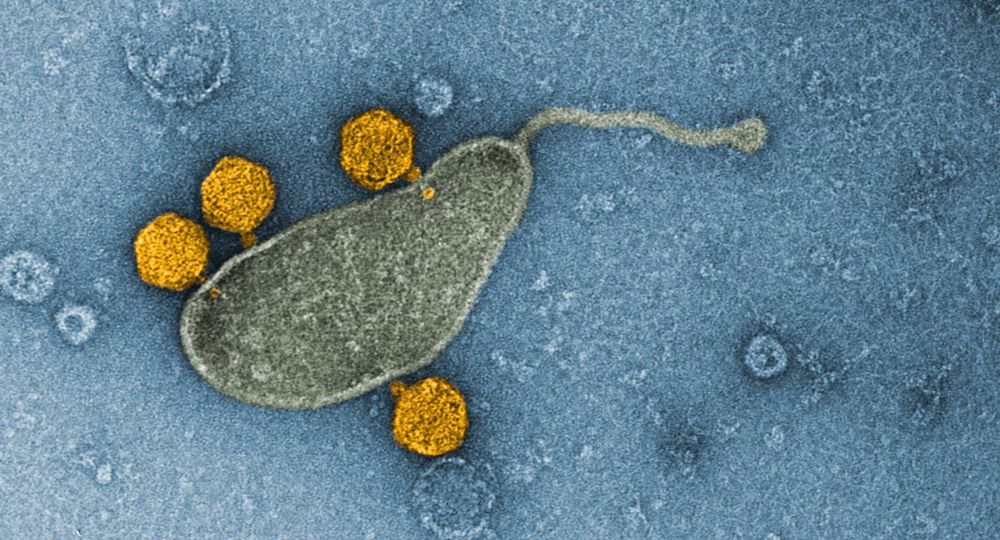The most common organism in the oceans, and possibly on the entire planet, is a family of single-celled marine bacteria called SAR11. These drifting organisms look like tiny jelly beans and have evolved to outcompete other bacteria for scarce resources in the oceans.
We now know that this group of organisms thrives despite—or perhaps because of—the ability to host viruses in their DNA. A study published in May in Nature Microbiology could lead to new understanding of viral survival strategies.
University of Washington oceanographers discovered that the bacteria that dominate seawater, known as Pelagibacter or SAR11, hosts a unique virus. The virus is of a type that spends most of its time dormant in the host’s DNA but occasionally erupts to infect other cells, potentially carrying some of its host’s genetic material along with it.
